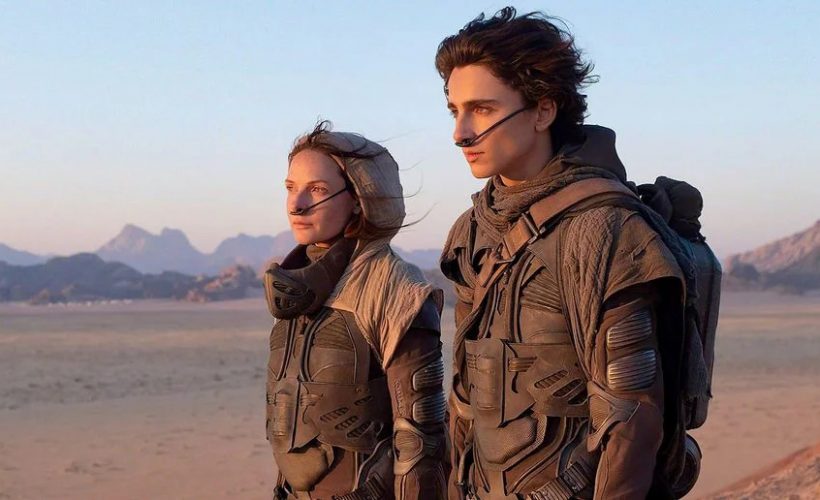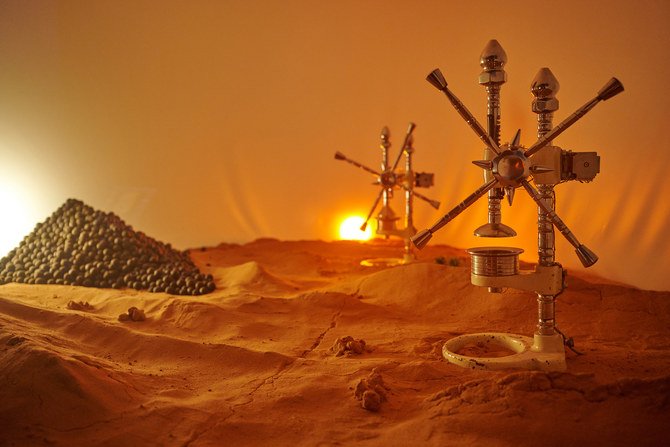Lifestyle
9.3.2019
Shahad Ameen confirms Saudi women’s cinema

The 76th edition of the Venice International Film Festival will take place from August 28th to September 7th. This year, two Arab films are presented during the critic week, among which Scales, a movie fantastically feminist from the Saudi director Shahad Ameen.
Before the start of the school year, the Venice International Film Festival gives us the opportunity to celebrate cinema from around the world. This year, two women directors from Saudi Arabia are invited to unveil their creations. If the first, Haifaa Al-Mansoor, is already a confirmed filmmaker, she is the first director of the kingdom to have shot in the streets of Riyadh, with Wadjda (the film won the price of the film of Art and Essay at the 2012 Mostra). The second, Shahad Ameen, deserves to be known. The latter first studied film production and screenwriting in London and New York, before returning to her country to develop local cinema.
Today, she writes and realizes stories in which she can recognize herself. Scales, her first film presented at the festival is a dreamlike tale set on an isolated island where baby girls are sacrificed to the sea in order to feed men who feed themselves only from mermaid meat. A symbolic fable about the oppression of women in societies where their bodies do not belong to them.
What led you to make movies?
Two things I think. I knew very quickly that I wanted to be a writer and tell stories. In the Arab world, Japanese animation was very popular during my childhood and I had a real passion for Hayao Miyazaki’s movies. When I was 10 years old, while I was watching popular mainstream American films, a Syrian show began to air on television. It was the first time I saw someone like me on screen. That’s when I realized that I wanted to do the same, to tell stories in which I would recognize myself. By then I thought a director was a screenwriter and my sister explained to me that it was two different jobs. I found it too unfair, so I decided to do both: write and perform.
How did the idea of the scenario came to you?
The story of the film is inspired by Eye & Mermaid, my previous short film. The idea is part of my desire to represent strong women in the Arab world, portraying women who are cast away because they do not follow the tradition. With Scales, I wanted to set up the story in a bigger theme. To explore the journey that brings a woman from a normal society to break the norms, even if she is alone, and to break free. Through creatures, we can represent something greater than what we see in reality.
You like to use fantasy or dystopia in your movies. In Eye & Mermaid you were depicting an imaginary world populated by oppressed mermaids. Why do you choose fantasy rather than realism in your movies?
To be honest, I wanted to create a visual world that would allow me to tell a story in a symbolic way. Maybe because I don’t like dialogues in movies, and I’m one of those directors who want to depend only on the visual language. I didn’t want to tell a story straight, but in a metaphorical way. And also in arabic literature, the sea is always represented like a woman so it allowed me to combine the idea of women and escape.
Where does this fascination for mermaids and underwater worlds come from?
For me, the sea has always been this world where we can escape. When you look at this horizon very far, the sea represents this opportunity to escape the concrete and buildings around you. The sea is also the unknown, and that’s how I was able to combine the idea of women and water with and also in many Arab poems the sea is always represented as a woman.
What was the biggest challenge during the shooting of the movie?
The hardest part was to find the right crew because there is a lack of drama school in the Gulf countries and the Middle East. So it was difficult to build a team, but in the end it was a beautiful mix of professionals and amateurs. Many of the Omanis from the village where we shoot the film assisted us, others came from Jeddah to help. Also, it was hard because there was no infrastructure, everything had to be built because we filmed in a very raw place that had never been explored before. Everyone told me not to do my first film in the water, but I didn’t listen. Everything takes more time than normal on water: managing the people on the boat for example, but in the end we managed.
You are the second Saudi director to be presented at the Venice International Film Festival. How do you feel?
I am very happy to see that there is a large representation of the Arab film this year. It is exciting because I feel that there is a real movement that will help us and I hope, in the future, to build a stable industry on which we can work on I hope to see more female voices added to ours. We need these voices.
What advice would you give to young female directors in the Arab world?
I did my film because I really believed that I had a unique voice and that the film world is lacking my voice and other women’s voices. The best advice I could give them is to trust in their voices to write something that represents them because people are waiting for them to write something that tell their experience and how they see the world. So I would tell them to trust their stories and their voices.
popular

